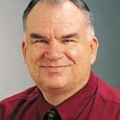In an attempt to support a US president whose energy policies have been hostile to oil and gas, Rep. Edward J. Markey (D-Mass.) asked for a status report on Gulf of Mexico leases.
"President Obama is right," Markey not surprisingly uttered in October. "When it comes to the oil drilling leases these companies hold on America's public land, they need to use it or lose it to a company that will drill," he maintained.
In the report Markey commissioned, the US House Natural Resource Committee's minority staff concluded that more than 100 oil and gas producers hold but are not drilling nearly 3,700 leases in the gulf.
Some of us in the newsroom can't remember a more obvious demonstration of lack of knowledge of the exploration business than this.
Oblivious to risk
Markey seems to believe that if an oil company bids for and wins a tract of federal land, it already knows hydrocarbons underlie the area.
He would rather that we pay no attention to the tens of millions of acres that federal agencies have declared off-limits to leasing or exploration to appease environmental activists.
Markey charged, "The oil companies are sitting on huge reserves of oil they're not even using, and they come back asking for more areas to be opened up for them to drill (OGJ Online, Oct. 23, 2012)."
It's not clear how Markey knows oil and gas underlie leases that haven't been drilled. Perhaps he is offering himself as a geological consultant, because companies would certainly like to know in advance—without having to spend millions to drill—where hydrocarbons lie.
Federal leasing roulette
Federal oil and gas leasing, whether onshore or in the gulf, is completely under federal control, and it's also a game of chance for the companies that bid.
The feds determine how many and which blocks to lease. They set the minimum bids, the length of time a company can hold a lease, and the royalty to be paid if hydrocarbons are found, and they could impose a drilling requirement. Markey surely knows all that. Imposition of a drilling requirement would certainly reduce the number of bids and cut bonus revenue to the government.
Markey's arguments make it sound as if the companies are in control. They're not. The vast majority of exploratory wells the companies drill are dry.
Exploratory wells in deep water can cost nine figures. Oil and gas operators have to finance such projects in an economic environment that Markey wouldn't recognize.
In New Mexico, for example, one major company spent more than $100 million and discovered a generous gas supply in a basin that never produced before, only to have the price of gas render the project uneconomic (OGJ, Apr. 4, 2011, p. 22).
The company is hanging onto its leases, however, hardly any of which are on federal land. Nevertheless, the same logic applies.
It is hard to tell whether Markey advocates more drilling or less bidding and leasing, either of which might anger his antifossil-development ilk.
Vain cover effort
Markey's feigned cover effort, flawed as it is, could never be enough to make up for the damage the Obama administration has inflicted on the domestic oil and gas industry.
The Environmental Protection Agency alone has wreaked major havoc. Obama frequently states that oil and gas production in the US are up, omitting the equally true fact that this has conveniently occurred during his term but in spite of, not as the result of, his policies.
It is clear that Obama is pandering to environmental interests in his voting base and that he wants to enforce and regulate fossil fuels into oblivion to give alternate energies the chance to replace them. Objective studies indicate that this can never happen because alternate fuels can't be produced on the needed scale
About the Author

Alan Petzet
Chief Editor Exploration
Alan Petzet is Chief Editor-Exploration of Oil & Gas Journal in Houston. He is editor of the Weekly E&D Newsletter, emailed to OGJ subscribers, and a regular contributor to the OGJ Online subscriber website.
Petzet joined OGJ in 1981 after 13 years in the Tulsa World business-oil department. He was named OGJ Exploration Editor in 1990. A native of Tulsa, he has a BA in journalism from the University of Tulsa.